Contributed by Cheryl Ng
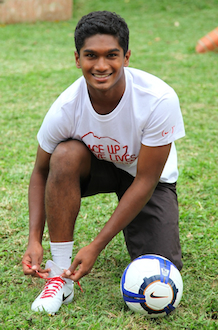
National footballer Hariss Harun. (Photo courtesy of IMSG)
Singapore will play against Iran in a crucial AFC Asian Cup qualifer on Wednesday, January 6th at the National Stadium.
National footballer Hariss Harun, 19, shares his thoughts on the game.
Hi Hariss, thanks for taking the time out of your busy training schedule to speak to us. To start, what are your thoughts on the game against Iran on January 6?
It's a crucial game; the group is wide open. All four teams have a very good chance of qualifying. With Iran being one of the best in Asia, it's important for us to get a positive result.
What does Singapore need to bring against them?
We have to be tighter defensively. In terms of ball possession, we have to be more aggressive; we can't afford to hold the ball and be too scared to play it. That's what teams like Iran and Oman are doing - they're not afraid to play and get more aggressive with the ball. We should bring their game to them.
Is that why we lost 1-4 to Oman?
We're trying to sort out what happened, but I think there were some lapses in concentration and a bit of miscommunication and frustration during the game. Nobody likes to concede goals, especially ones that could have been avoided.
What else have we learnt from that loss?
The coach (Raddy Avramovic) has told us that we should also be playing Oman's game, with more movement, because when there's more movement, there are more options with what you can do with the ball and your team mates.
Have we benefited from the games with Oman?
Well, Iran's style of playing is similar to Oman, so mentally we have a better idea of what to expect. It's just more about how we'll shape up physically and tactically.
What's the sentiment of the team? Is it a do-or-die situation?
We have two more games, but the coming Iran game is our last one in Singapore, so we have to make the most of the home advantage. I really hope our supporters turn up in full force at Kallang. In terms of the game itself, you could call it do-or-die. Like the previous game against Thailand in Bangkok, our backs were against the wall but we were able to step up to the challenge. The results speak for themselves. We're looking at the Iran game in a similar way.
How do you feel you performed against Oman?
I have to improve on my combination of passing and play with my team mates. I think some of us were in pre-season, coming off holidays, so we were still a little shaky. It's not an excuse, but during mid-season, you have your momentum and match fitness built up already. It's part and parcel of any footballer's career, and it's something we all have to work on.
You're also one of the youngest players to take to the field. Do you feel a lot of pressure from expectations?
Initially, there was, but I've learnt to live with it. One important lesson from watching professional footballers is to not let personal or external issues affect what happens on the field, because you have to be professional as it's what you do for a living.
How old were you when you first got into the game?
I was about six. I think I was watching a game on TV at my grandma's place with my father and uncle, and I found it really exciting and appealing. I started playing in the void deck with my neighbours after that, and I haven't stopped since then.
When did you realise this was what you wanted to do as a career?
It was when I was selected for the school team in primary five or six. For that level, the training was hard, but I told myself that I had to make it, especially after watching National Team players like Indra and Alam Shah. I looked up to them and I wanted to be like them, playing for Singapore.
Was it a difficult journey?
I had a few disappointments in my youth, like when I tried out but wasn't selected during the Singapore Sports School trials at 13. I didn't let that affect me, and it helped that my parents were always encouraging and supporting me. It was easier to put it behind me with their support. They were even there during my training sessions in the youth team. That's when I realised, "If my parents believe in me, then why shouldn't I believe in myself?" What's great was that I was called up for the NFA (National Football Academy) the following year. From then on, I've made it a point to step up to any challenge.
Other than your parents, who else have been your biggest inspirations?
Steven Gerrard. I've followed Liverpool closely for a long time, and ever since he became their captain, he's been carrying the team well for many games. He's consistently inspired them to many wins, and his drive really inspires me.
As a defensive midfielder, are there any other players you watch to try to emulate?
I've been looking at Xabi Alonso and Fabregas very closely. They're very attack-minded players actually; it's good because it's two fields I get to develop.
Has your life changed after becoming a recognised athlete here?
I actually have a few people asking me for autographs. What's funny was that in school, one of my lecturers actually approached me for one! It was really embarrassing, as it was in front of my whole class. He even took a picture with me!
Is it difficult balancing sports and school?
Lately, it's been crazy. Being in poly, it's not easy as you have many reports and projects coming at you fast, but you get used to it. I've been doing this since I was 14, so it's not too different.
What advice do you have for young budding talents that are starting to develop their talents as well?
A lot of people will definitely feel and say that it's almost impossible to balance such a schedule, but it all boils down to how well you take the pressure. Discipline and time management are the most important factors. You can still have fun, but you have to know where your priorities lie.
Do you manage to have a social life then?
My friends make fun of me all the time, saying I don't have one (laughs). But I definitely take the time to be with my family, and also meet up with friends for meals. We mostly like to hang in Changi Village to grab a meal.
Do you play any other sports apart from football?
I've tried table tennis and badminton, and I've come to realise that I have no hope in table tennis (laughs). I'm okay in badminton. I'm still better with my feet than my hands.
What are your long-term goals in regards to your football career?
Most professional players stay in the game mostly till their early to mid-30s - unless you're Aleksandar ?uri? (laughs). I'm currently doing my Diploma in Sports & Wellness Management in Nanyang Polytechnic, and I hope to take up other courses along the way to enrich myself as well. It'd be a dream to play overseas, even before I started playing with the Young Lions. I'm looking to continue playing well, and hope for the opportunity to come along. It'd be great to play a top Asian league, and a bonus if it was in Europe.
How different do you think your life would be if you weren't in football?
I'd probably be working in a fast-food outlet or a 7-11. At this age, if I wasn't a footballer and earning what I'm earning, that's what I'd most likely be doing part-time to contribute to my family. I'm very grateful to have this opportunity, and it feels great to be able to reduce my family's financial burden.
Since it's already 2010, what are your World Cup predictions?
I think it will be a close game between Spain, Brazil and England. A dream final for me would be Spain and Brazil though. It'll be quite a spectacle as both countries are fantastic attackers.
Finally, have you made any New Year's resolutions?
To qualify for the Asian Cup, because I think we have a strong chance. I hope that the Lions have a good year in 2010. Personally, I just want to work hard, study hard and be a better player.

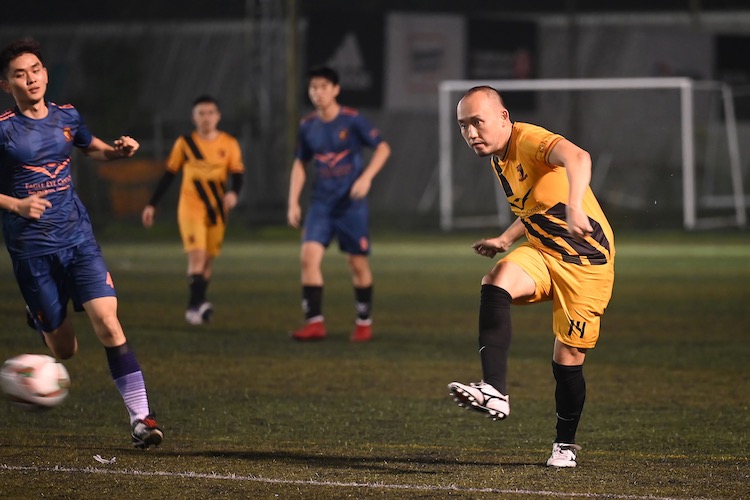
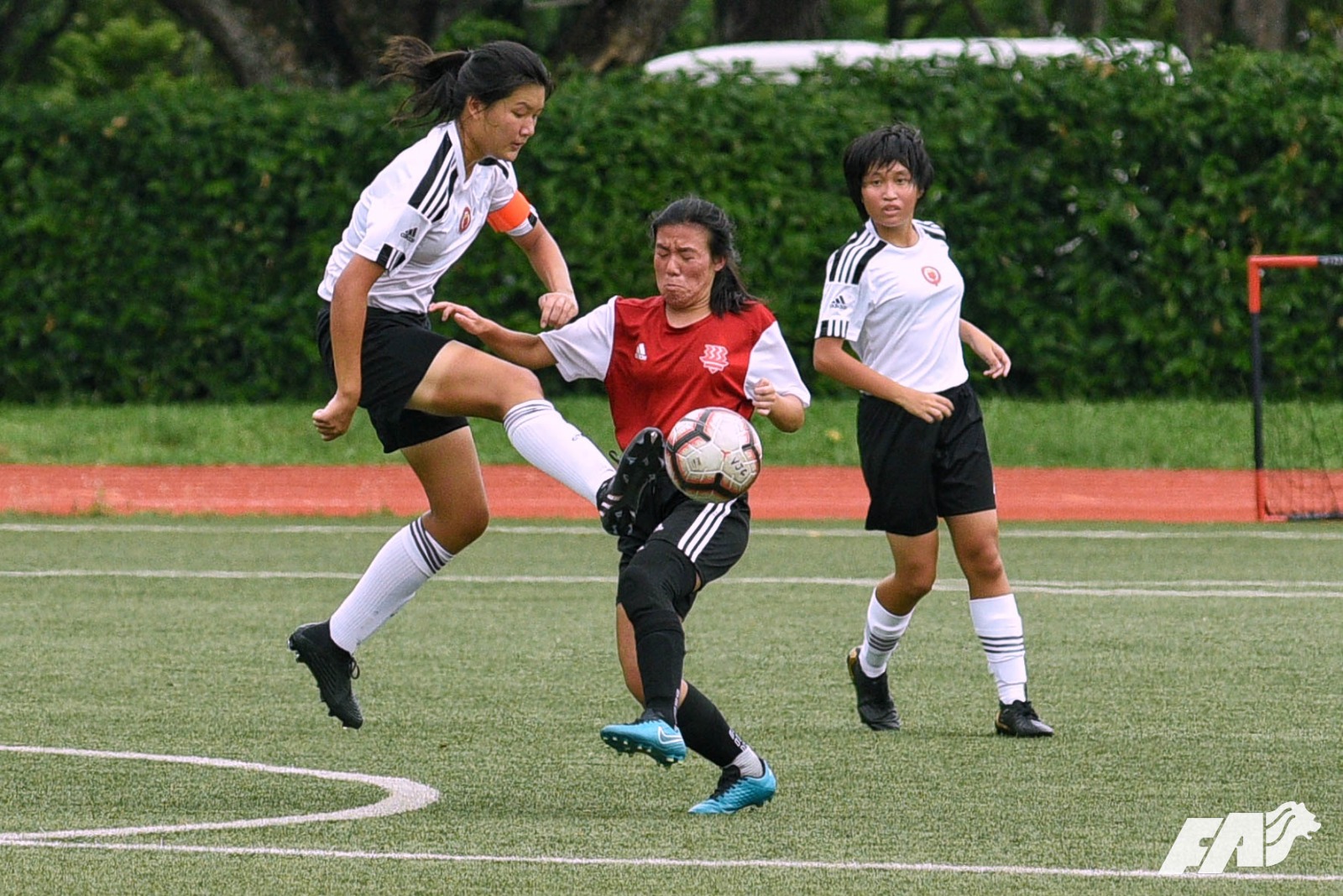
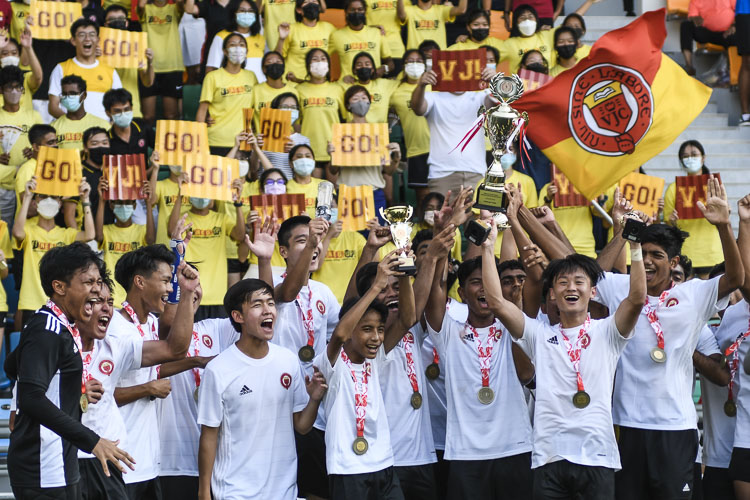
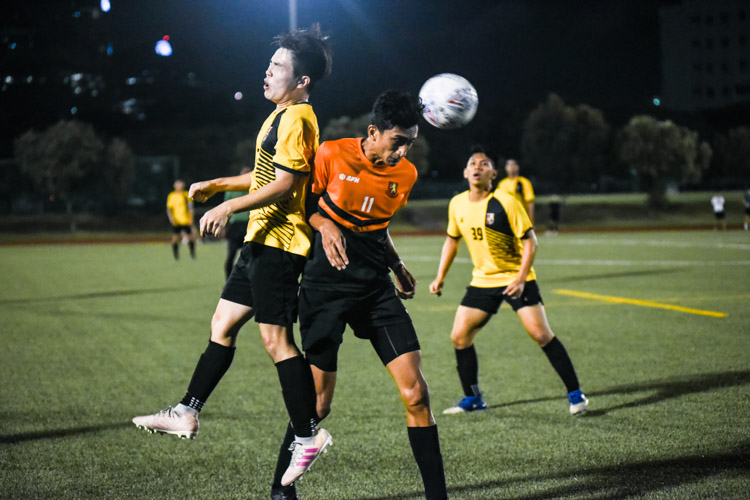
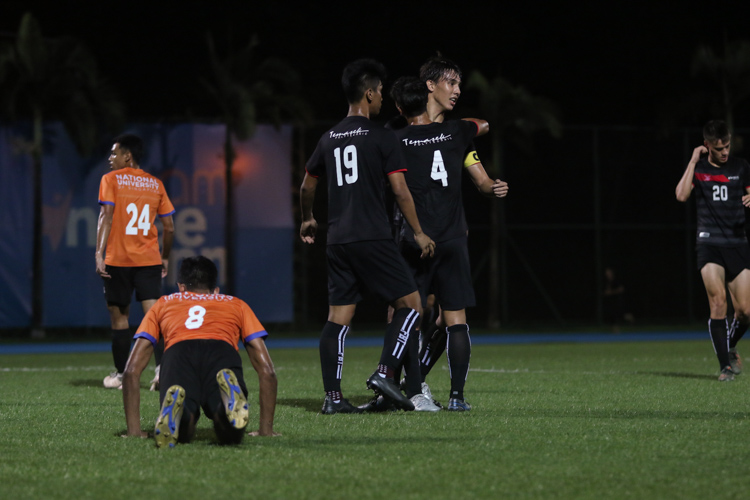
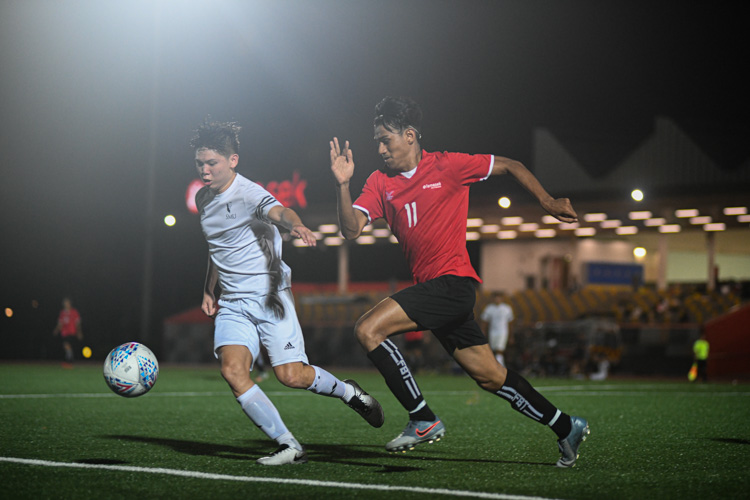
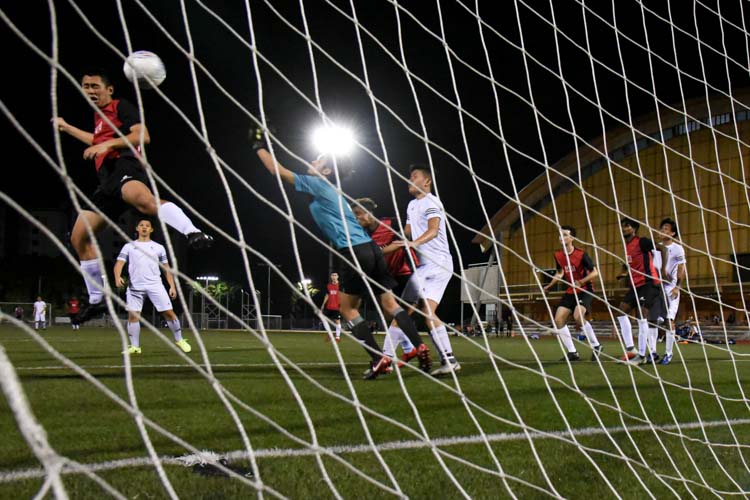

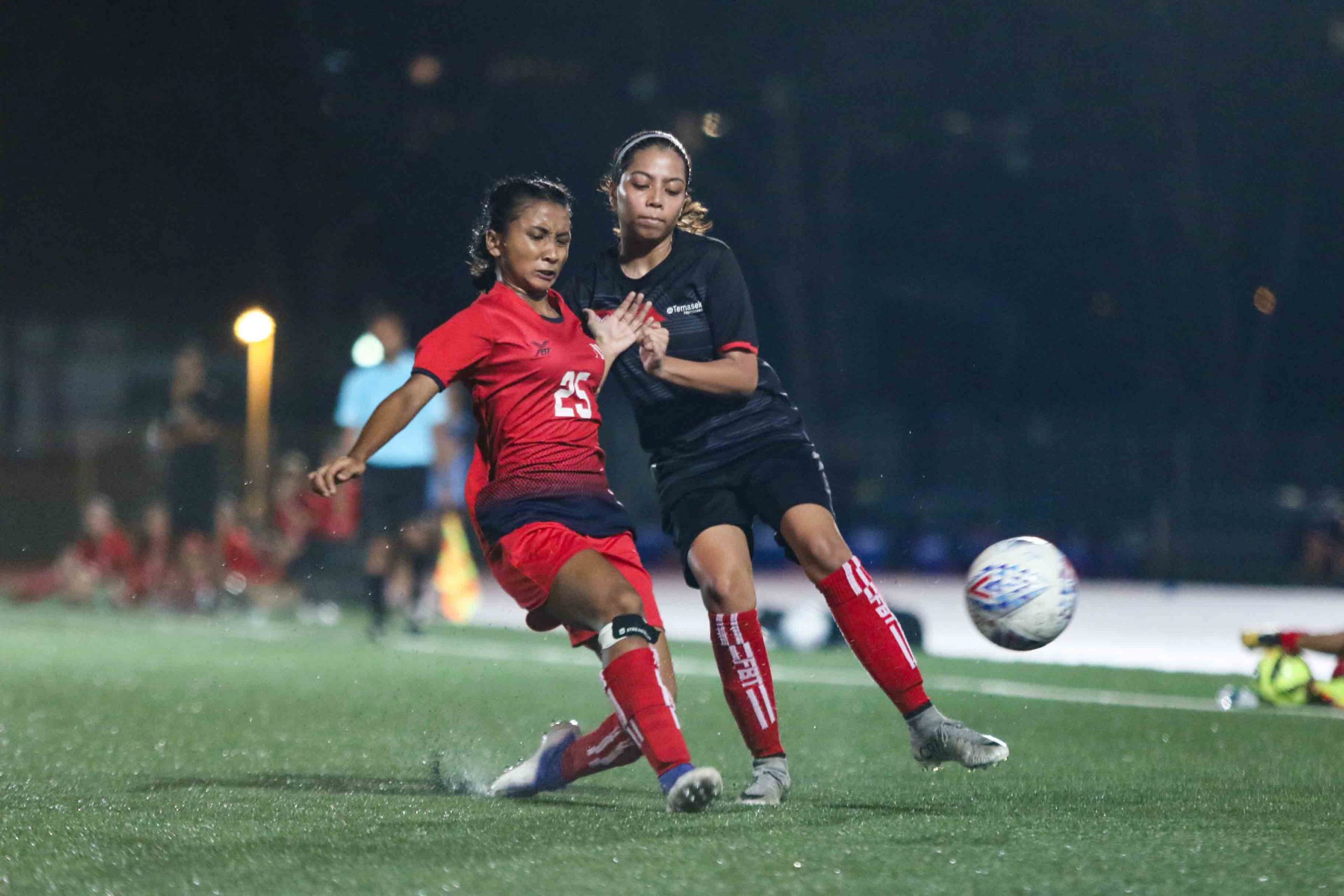
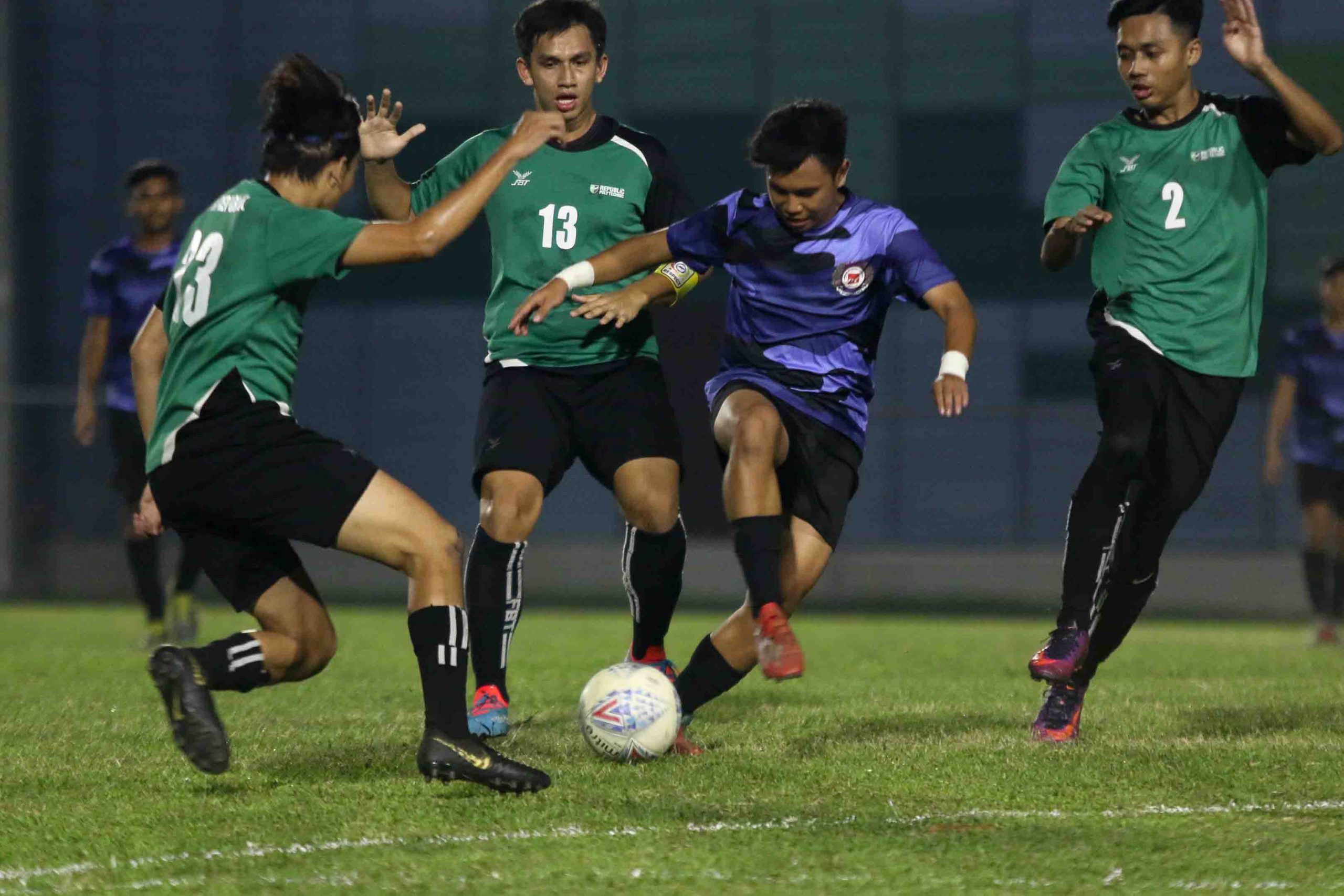
Leave A Comment